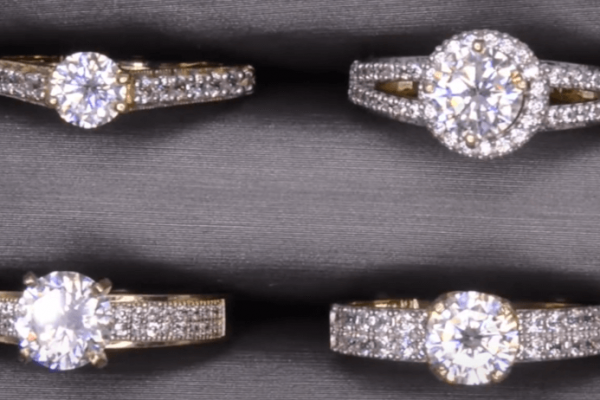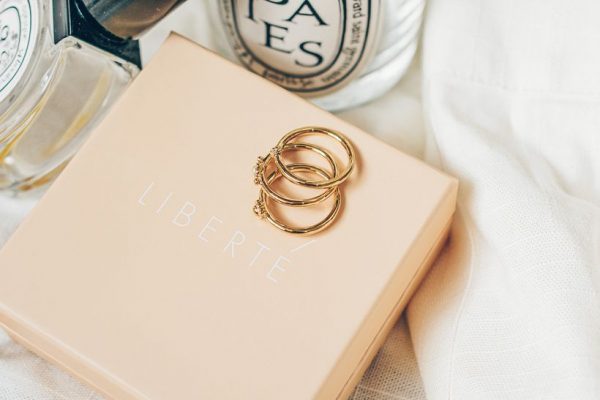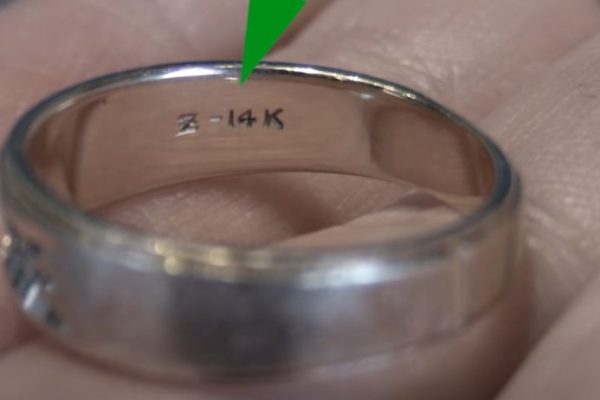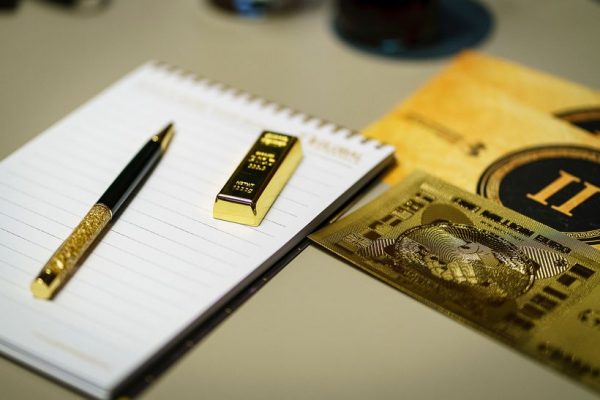There are a few different methods you can use when it comes to separating copper from gold.
In this post, we’ll walk you through the three most common methods, and tell you how each one works.
We’ll also give you a few tips on how to get the best results.
So let’s get started!
How to separate copper from gold?
Panning Method
The first method is called the “panning” method.
This is the oldest and most common way to separate copper from gold.
It works by using a pan to swirl the water around in a circular motion.
The heavier metals will sink to the bottom, while the lighter metals will float to the top.
This is a relatively simple process, and it doesn’t require any specialized equipment. However, it can be a bit slow and it’s not very effective for extracting smaller particles of gold.
Sluice Box Method
The second method is called the “sluice box” method.
This is a more advanced way to separate copper from gold, and it requires some specialized equipment.
A sluice box is a long, narrow box that has a series of ridges and grooves on the bottom.
Gold dust and small particles will get trapped in these ridges and grooves, while the heavier metals will flow through them.
This is a more efficient way to extract smaller particles of gold, but it can be expensive and it’s not as easy to use as the panning method.
Chemical Separation Method
The third method is called the “chemical separation” method.
This is the most advanced way to separate copper from gold, and it requires some specialized equipment.
A chemical separation takes place in a lab, where different chemicals are used to extract the gold from the copper.
This is the most efficient way to extract gold from copper in general, but it’s also the most expensive and difficult to use.
How do you remove copper from gold ore in leaching?
The most common way to remove copper from gold ore in leaching is through the use of cyanide. Cyanide will react with the copper and form a compound called “cyanide copper”. This compound can be then be separated from the gold using a variety of methods, such as flotation or gravity separation.
Gold mining has always been a difficult process, but it’s becoming increasingly so as copper minerals present new difficulties. These issues lead to inefficient use of cyanide and oxygen which ultimately results in low extraction rates for gold ores trapped within them.
Tips for Separating Copper from Gold
Now that you know how to separate copper from gold, here are a few tips to help you get the best results:
- Make sure to use clean water when panning or using a sluice box. Dirty water will contaminate your gold dust and make it harder to extract.
- When using the chemical separation method, make sure to use pure chemicals that are specifically designed for this purpose. Do not try to use chemicals from your home chemistry set – you’ll likely end up with a mess and no gold!
- Always test your ore to see if it contains any valuable metals before you start trying to extract them. You may be wasting your time if the ore doesn’t contain any gold or copper.
- Be patient when separating copper from gold. It can take time to get the hang of it, but with practice, you will be able to do it quickly and easily.
- Keep track of your results so that you can improve your process over time. The more you practice, the better you’ll become at separating copper from gold.
- Always be aware of the dangers involved in gold extraction. This process can be dangerous if you’re not careful, so make sure to follow all safety instructions.
How can you tell gold from copper?
Gold is a yellow metal, while copper is a reddish-brown metal.
Gold is also much heavier than copper, so it will sink to the bottom of a pan or sluice box faster. A pound of gold weighs about twice as much as a pound of copper.
If you’re not sure which metal you have, you can always send it in for testing. Most jewelry stores and pawn shops offer this service.
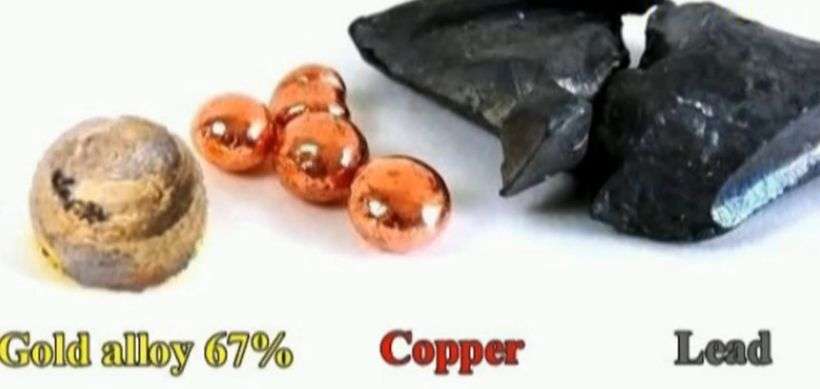
Can an alloy of copper and gold be separated by distillation?
An alloy of copper and gold can be separated by distillation, but it’s a more advanced process and it requires some specialized equipment.
Distillation is a way to separate different elements or compounds from each other. It works by heating the mixture until it vaporizes, then cooling the vapor until it turns back into a liquid. The different elements or compounds will condense into different layers, based on their weight and boiling point.
When distilling an alloy of copper and gold, make sure to use a heat source that is consistent and accurate. If the temperature varies even slightly, it can affect the results.
The downside to distillation is that it’s a slow process, and it can be difficult to get good results. It’s also an expensive process, so it’s not practical for extracting small amounts of gold from an alloy.
Can an alloy of copper and gold be separated by using a magnet?
An alloy of copper and gold cannot be separated by using a magnet because they are both non-magnetic.
If you want to separate an alloy of copper and gold, you need to use a method that relies on weight or boiling point. Using a magnet will not work.

Final words
So there you have it – three methods for separating copper from gold. While the panning method may be the simplest solution, the sluice box method is more effective for smaller particles of gold. When separating large amounts of copper from gold, the most advanced chemical separation method is your best choice.
Whichever method you pick, make sure to use the right equipment and familiarize yourself with safety information or measures. Above all, be patient and take your time in getting the hang of it.
What are your key takeaways? Let me know in the comments below and share this post if you’ve found it helpful!
Sources
- ScienceDirect.com | Science, health and medical journals, full text articles and books. Treatment of copper-rich gold ore by cyanide leaching, ammonia pretreatment and ammoniacal cyanide leaching. https://www.sciencedirect.com/science/article/abs/pii/S1003632615636421#:~:text=Ammonia%20pretreatment%20is%20shown%20to,consumption%20in%20subsequent%20cyanide%20leaching.
- ResearchGate | Find and share research. Treatment of a Copper-Rich Gold Ore by Ammonia Assisted Cyanide Leaching. https://www.researchgate.net/publication/234111181_Treatment_of_a_Copper-Rich_Gold_Ore_by_Ammonia_Assisted_Cyanide_Leaching
- Home – National Geographic Society. Ore. https://www.nationalgeographic.org/encyclopedia/ore/
- Metallurgist & Mineral Processing Engineer. Volatilisation of Gold. https://www.911metallurgist.com/blog/volatilisation-of-gold
- BBC – Homepage. Which materials are magnetic? https://www.bbc.co.uk/bitesize/topics/zyttyrd/articles/zw889qt
- Ganoksin – Jewelry Making Forum and Information Resource. Metals Safety Information. https://www.ganoksin.com/article/metals-safety-information/

